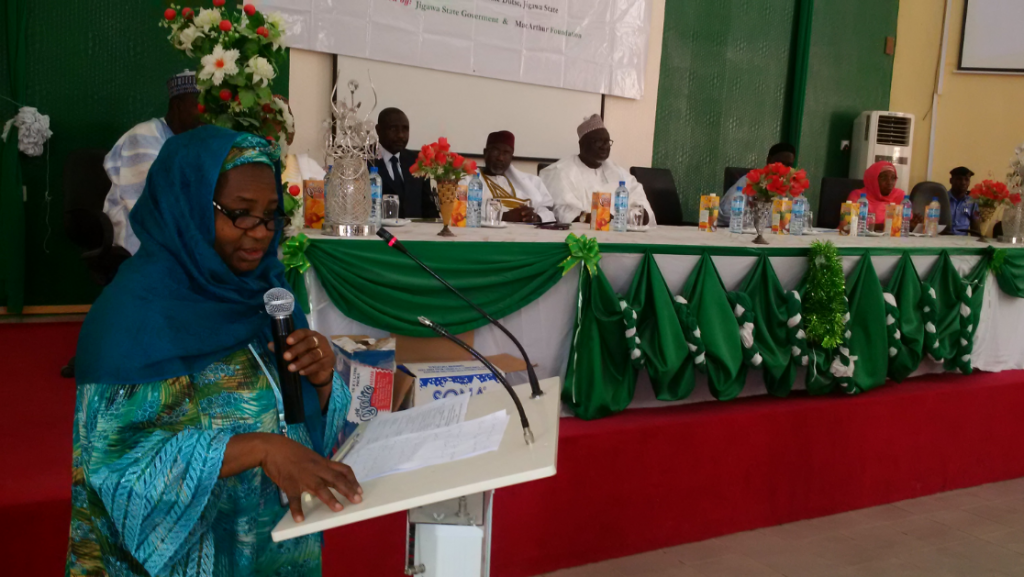Background
The WRAPA Islamic Family Law project is being implemented with support from MacArthur Foundation and the Governments of the seven Northwest States to enhance the application and improve practice around Islamic Family Law matters. The project grew out of concerns with the way and manner Islamic family law and practice was understood and practiced in the 7 North Western States of Jigawa, Kaduna, Kano, Katsina, Kebbi, Sokoto and Zamfara. Assumption was rooted in the understanding that in family and domestic relations, women’s rights were routinely breached and abused.
Inputs
It was in this regard, the project commissioned four types of researches in the 7 project states with the objective of producing the pure family law and practice as distinguished from the mixture of elements of true family law and practice and the interference of cultural practices. The researches were designed to produce two perspectives the first from the orthodox scholars and other from the mainstream Ulama, both aimed at distilling and defining the correct position of Islam on issues of family law and practice; jettison the un-Islamic cultural practices, exclude them clearly so that a deliberate approach to facilitate shifts in these practices from the body of Islamic family law could be facilitated. The research involved data collection from courts of law and family institutions, interviews with women and other stakeholders, the intelligentsia, community leaders, leaders of faith, relevant Government Agencies, Departments, NGOs, and the media.
One of the key findings of the research is that the breach of family rights derives from a mix of ignorance and un-Islamic hostile cultural practices. The research reports exposed systematic and sustained breach of rights of a woman as a mother, daughter, and wife or even as a sibling. The studies also showed a wide gap between the letter and spirit of Shari’a law and its administration at personal and judicial levels; with evidence of harmful practices influenced by culture and other factors. This gave a motivation for an all-inclusive dialogue with relevant stakeholders and organizations including the Governments of the Project States. Accordingly, the project embarked on extensive dialogue visits and engagements with the State Governments including the judiciary and legislature, community and faith leaders, women groups, NGOs, and the media.
Outputs
The dialogue produced a near consensus on the level of violation of women’s rights that was alarmingly higher in the project states and needed to be addressed calling for an immediate action plan. Put together, the researches and dialogue also generated a body of scholarship presented and validated by over 80 Jurists, Ulama, Culture leaders at a Validation and Consensus Meeting in Jigawa State. The meeting reviewed project positions on family law, practice and issues and ratified almost all of them. The participants also advocated for the uptake of project implementation of all the agreed project positions. WRAPA with the support of renowned scholars and jurists then embarked on the design of project tools to ensure the implementation and sustainability of the project outcomes.
Consequently, the instrument of Hakamain, the marriage consent form, the marriage contract and certificate forms and model Khutbahs were all designed and subjected to intensive examination by experts, duly adopted and are now ready for formal implementation as clearly urged by the project goals and the positions of the Jigawa validation and consensus positions. Other positive achievements include the gradual adoption and buy-in by important stakeholders and institutions endorsing and adopting the tools.
Achievements
Katsina State has adopted the project’s Sulhu/Hakamain concept and structure and implementation of the practice had since commenced. Kaduna, Kebbi, Zamfara and Kano have expressed interest in the concept. The project Sulhu/Hakamain concept is also in operation in the Dutse Emirate with resounding success and significant increase in access to justice for women with greater family cohesion outcomes. The on going work to legislate on a personal law code in Kano State is in part influenced by the WRAPA IFL project outcomes. In Kaduna Muslim marriage contract forms are being modified to adopt most of the terms to be proposed in the project’s marriage contract form. In Jigawa State, health testing before marriage has been legislated as an outcome of the work of other development partners (J4A/DFID) and the IFL project. Technical support for legislative engagements will be extended to Kebbi State in the efforts to enact laws against withdrawal of girls from school. In Sokoto State and under a partnership with a sister NGO (IWEI) in Kano and a technical crew from NMap, three documentaries have been developed advocating for girl-child education and consent in marriage as well as regulating the exercise of I’jbar. In Zamfara the project is partnering with the Judiciary to undertake rights based appreciation using the informal open space engagement approach targeting mid and lower level Shari’a court personnel. This aimed at improving case and clientele management for family law cases.
Next Steps
There are strong indications that the third and final phase of the WRAPA IFL project will build on these gains and other interventions. WRAPA is working hard to consolidate buy-in and inputs from experts, its patrons, community, faith and culture platforms, and most importantly the state Governments to achieve sustainable shifts in the way of life of Muslim families.


